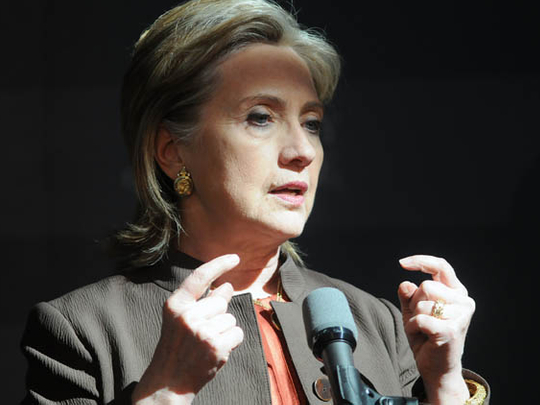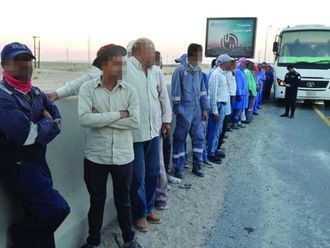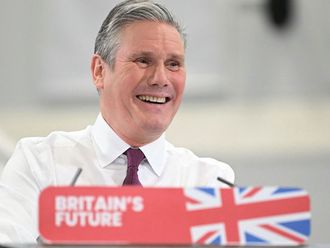
Kentucky: US Secretary of State Hillary Rodham Clinton offered assurances that a new nuclear arms control treaty enables the US to maintain a "strong, flexible deterrent" as she urged divided Republicans and Democrats to ratify the pact signed by President Barack Obama and Russian leader Dmitry Medvedev.
In a speech delivered Friday in Senate Republican Leader Mitch McConnell's hometown, Clinton hailed the treaty signed by US and Russian leaders on Thursday as the "latest chapter in a history of American nuclear responsibility" supported by presidents of both parties and strong majorities in Congress.
The nuclear arms pact now faces a ratification vote in the US Senate, which is near gridlock on many issues, and the Russian legislature.
"There are times when people of good will and great intellect have diverging views on how to deal with complex issues. But I don't think this is one of those times," Clinton said in a speech at the University of Louisville.
"We believe strongly that this is in our nation's best interest and I am confident that once senators have the chance to study this new treaty, we will have the same high levels of bipartisan support as the agreements that this one builds upon," she said.
The pact commits the U.S. and Russia to slash the number of strategic nuclear warheads by one-third and more than halve the number of missiles, submarines and bombers carrying them.
The two countries would still be left with enough nuclear might to ensure mutual destruction several times over, but both sides already are pursuing potentially deeper reductions.
"We are determined to see that nuclear weapons are never used again," Clinton said. "But the new START Treaty will enable us to retain a strong, flexible deterrent. Our military will continue to deploy every leg of our nuclear triad: land-based missiles, submarine-based missiles and bombers.
"The treaty will enable us to maintain this arsenal, and also provide strong verification provisions."
Some Senate Republicans are reserving judgment on the deal until they are assured it won't set back US defenses or interfere with plans for a European missile shield.
Clinton said the treaty would enable the US and Russia to "build trust and increase understanding of each other's forces while eliminating potential opportunities for mistakes and miscalculation."
However, she assured that by ratifying the treaty, the US "won't give up anything of strategic importance. But, in return, we will receive significant, tangible benefits."
McConnell, a Kentucky Republican, has been noncommittal so far on the treaty.
In a statement Friday, McConnell mentioned "three main criteria necessary for favourable consideration: America's ability to verify compliance, its impact on our national defense against the threat of nuclear-armed missiles and the modernization and continued strength of our nuclear arsenal."
Clinton also said approval of the treaty would enhance America's security and give it more international credibility in dealing with Iran and North Korea's nuclear programs.
Clinton said she wasn't suggesting that reducing U.S. and Russian nuclear stockpiles will convince Iran and North Korea to "change their behaviour."
"But can our efforts to bring the new START Treaty into force help persuade other nations to support serious sanctions against Iran? I believe they could," she said.
Clinton also said that she is confident stalled North Korean nuclear disarmament talks will resume. North Korean leader Kim Jong Il's recent health problems and widespread discontent about his government's failed economic policies have hindered negotiators, Clinton said.












